Last week saw the great success of the CuttingGardens2023 conference (16-19 October 2023). This was a globally distributed and hybrid conference on cutting-edge EEG/MEG methods with 800+ attendees. The event was globally coordinated by the CuttingEEG Association, and locally hosted by 21 gardens in 15 countries across Europe, Asia, and North and South Americas. Bournemouth University hosted a local Bournemouth Garden as part of this global event. This was chaired by Dr Xun He (also a member of the global organising committee) and the Multimodal Immersive NEuro-sensing (MINE) Research Cluster.
The conference had a series of plenary (global) talks on topics of theoretical advances, real-time processing and classification, reproducible analyses, and deep neural networks. These plenary talks were globally broadcasted to all gardens. Our Bournemouth Garden hosted a plenary speaker (Hubert Banville from Meta) on deep neural networks in the afternoon of Thursday, 19 October. Our local discussion on the plenary talks was so lively and critical, that very often our questions were among the top-voted online. Our attendees also enjoyed a thought-provoking, interactive, and friendly local programme. Following BU’s research expertise, they got a chance to visit the MINE Research Cluster and the EEG-eye tracking co-registration labs, and greatly advanced their knowledge and skills in these research fields through talks and tutorials. Our sponsors, ANT Neuro UK (EEG equipment producer) and TG0 (tactile sensing devices producer), also showed great support and delivered excellent demonstrations showcasing the most recent technical advancement.
The full support from the Faculty of Science and Technology (represented by Prof Christos Gatzidis) was extraordinarily reassuring, without which the conference would not have taken place. FST’s Deputy Dean, Dr Carly Stewart, also delivered the welcome note for the conference.
Our great success could not have been possible without the very enthusiastic and dedicated work of the best team. They truly deserve a loud round of applause! They are:
Bournemouth Garden organising committee (over 15 months from July 2022 to October 2023): Xun He (Chair), Ellen Seiss, Andrew Hanson, Marina Kilintari, Ruijie Wang, Federica Degno, and Biao Zeng (University of South Wales, visiting fellow of BU)
Local speakers: Federica Degno, Andrew Hanson, Otto Loberg, Géza Gergely Ambrus, Xun He
MINE Research Cluster visit hosts: Fred Charles, Ellen Seiss, Andrew Hanson, Xun He
EEG-eye tracking co-registration lab visit hosts: Federica Degno, Otto Loberg
Broadcasting support: Elliott Roch
Assistants: Damla Kuleli, Toby Denholm-Smith
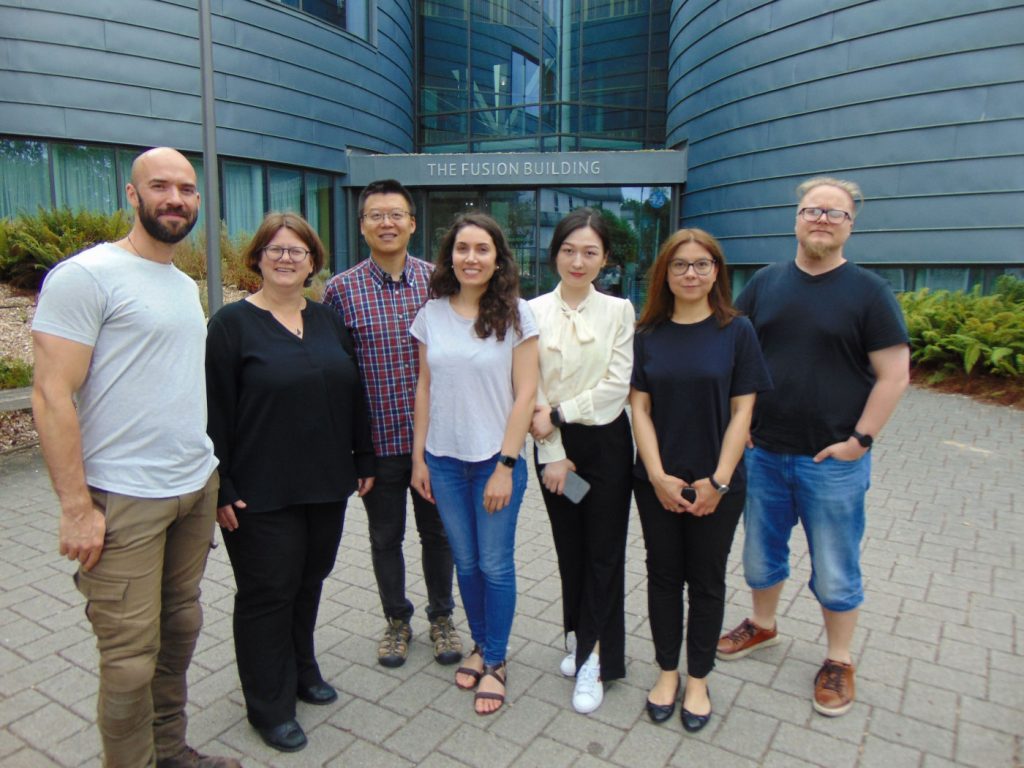
Some team members and speakers in the summer of 2023 (from left to right: Andrew Hanson, Ellen Seiss, Xun He, Federica Degno, Ruijie Wang, Marina Kilintari, Otto Loberg)
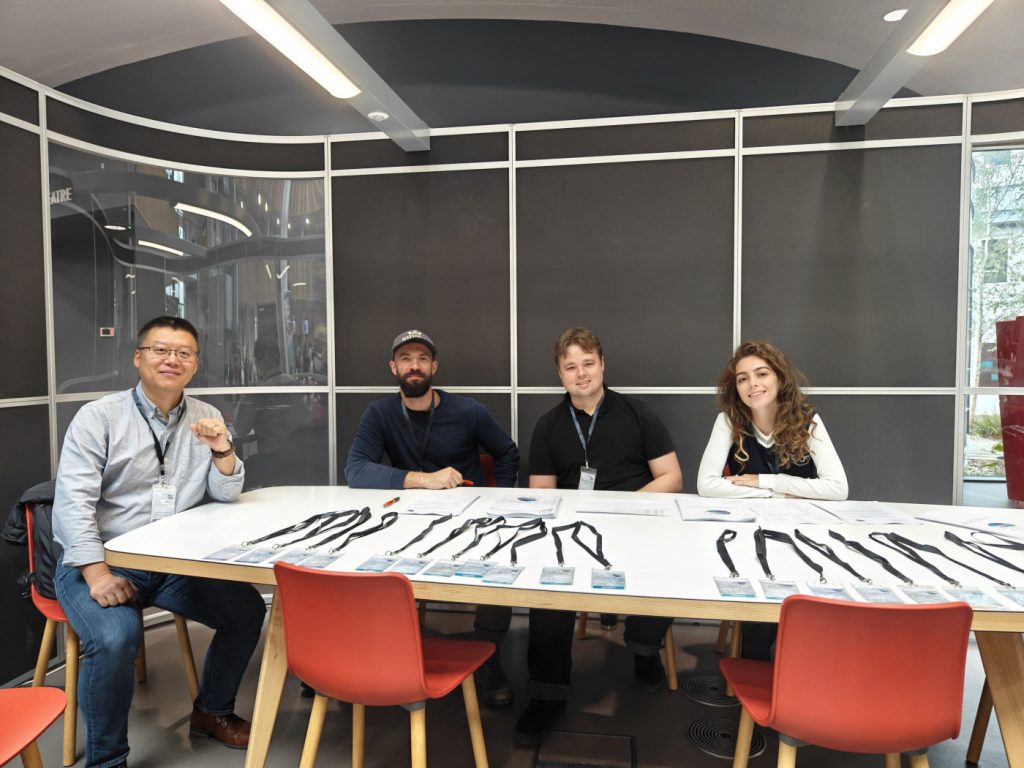
Registration desk (from left to right: Xun He, Andrew Hanson, Toby Denholm-Smith, Damla Kuleli)
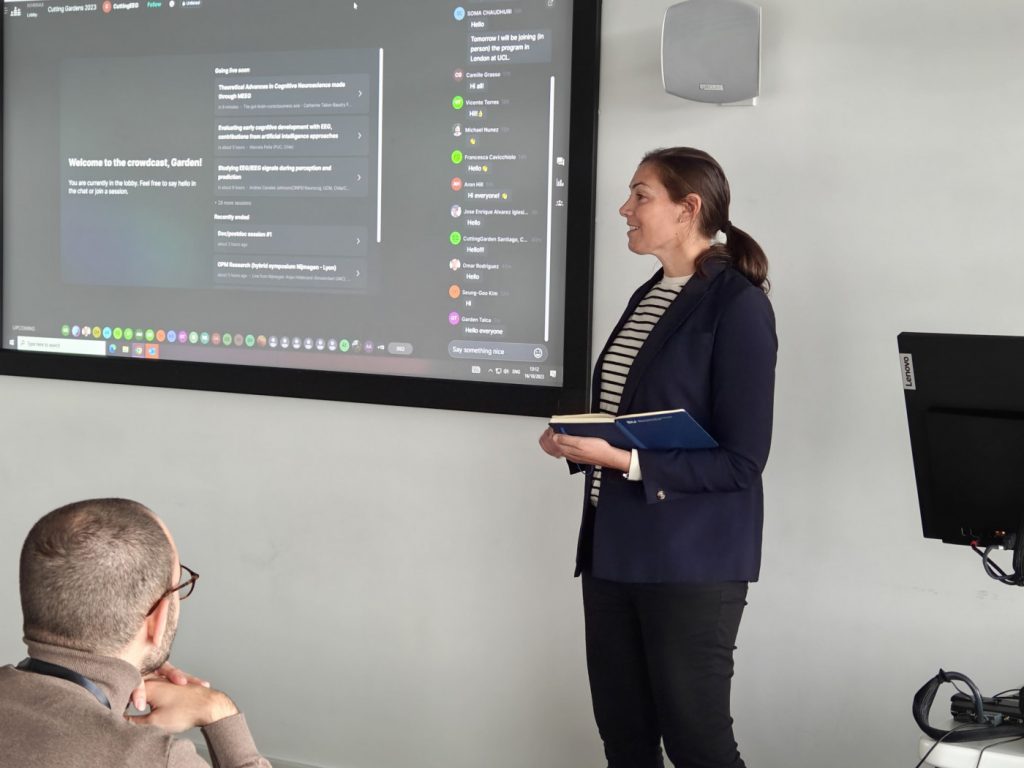
Carly Stewart (FST’s Deputy Dean) delivering the welcome note
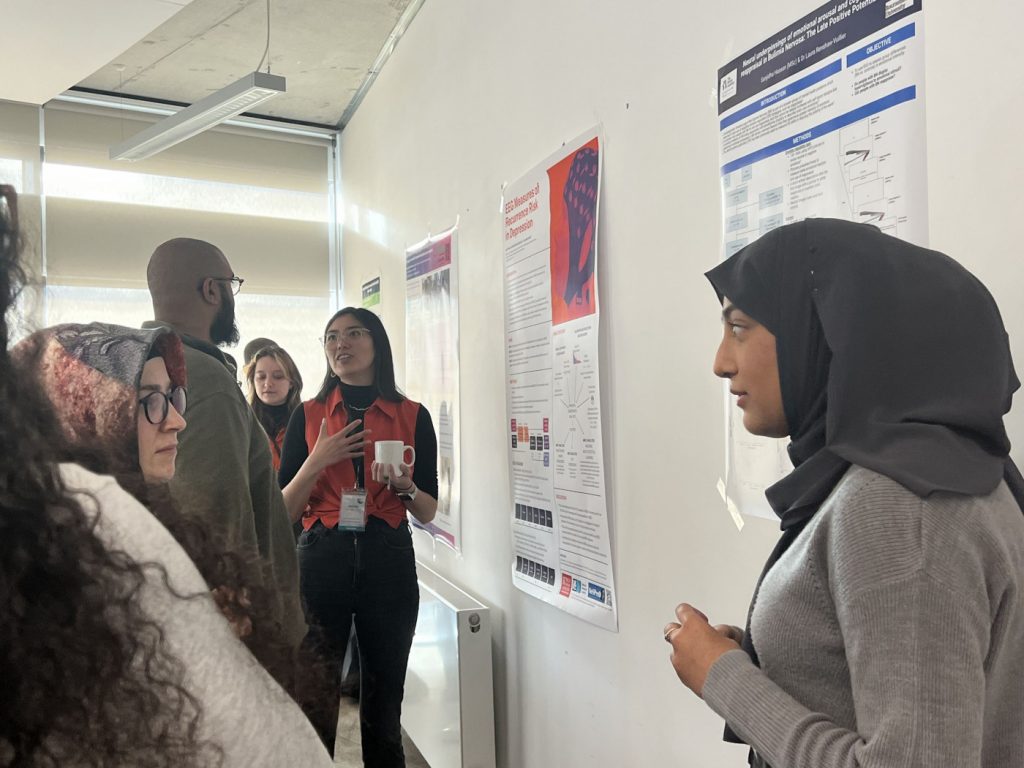
Poster session
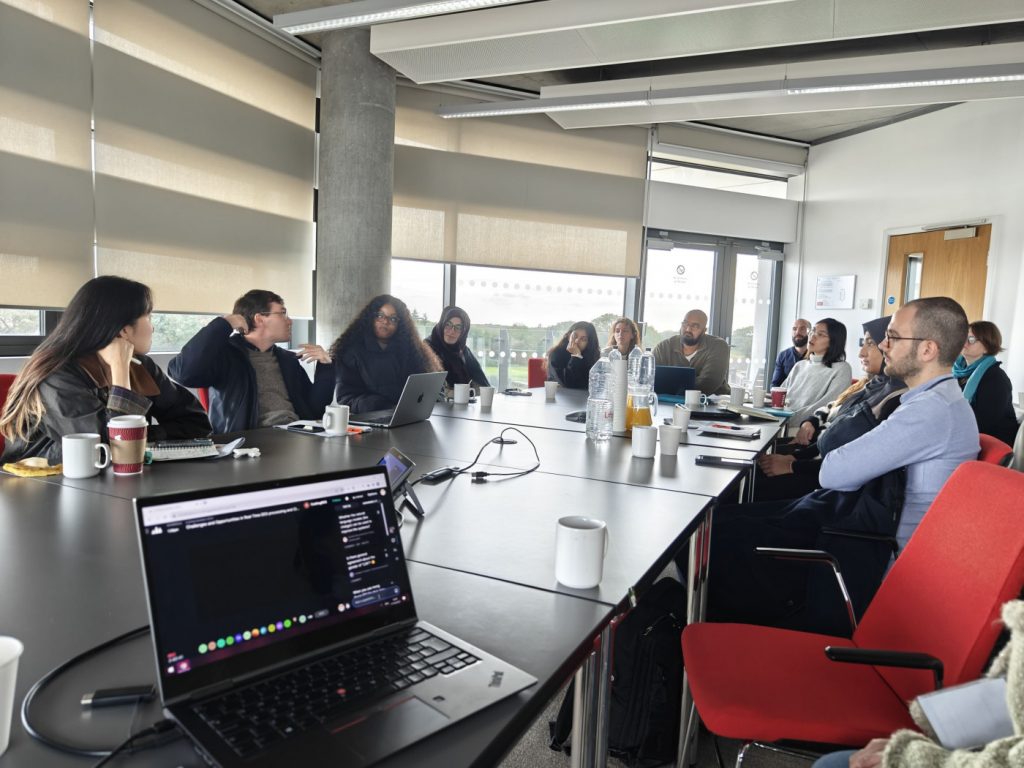
Discussion after a plenary talk
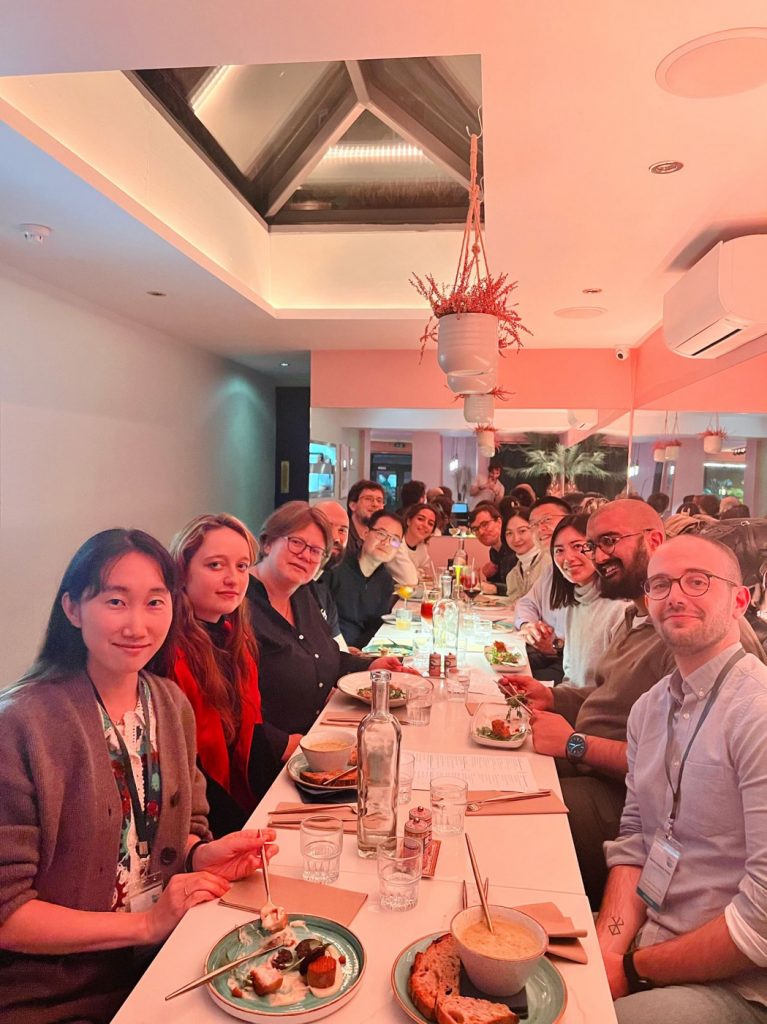
Enjoying the conference dinner at a vegan restaurant
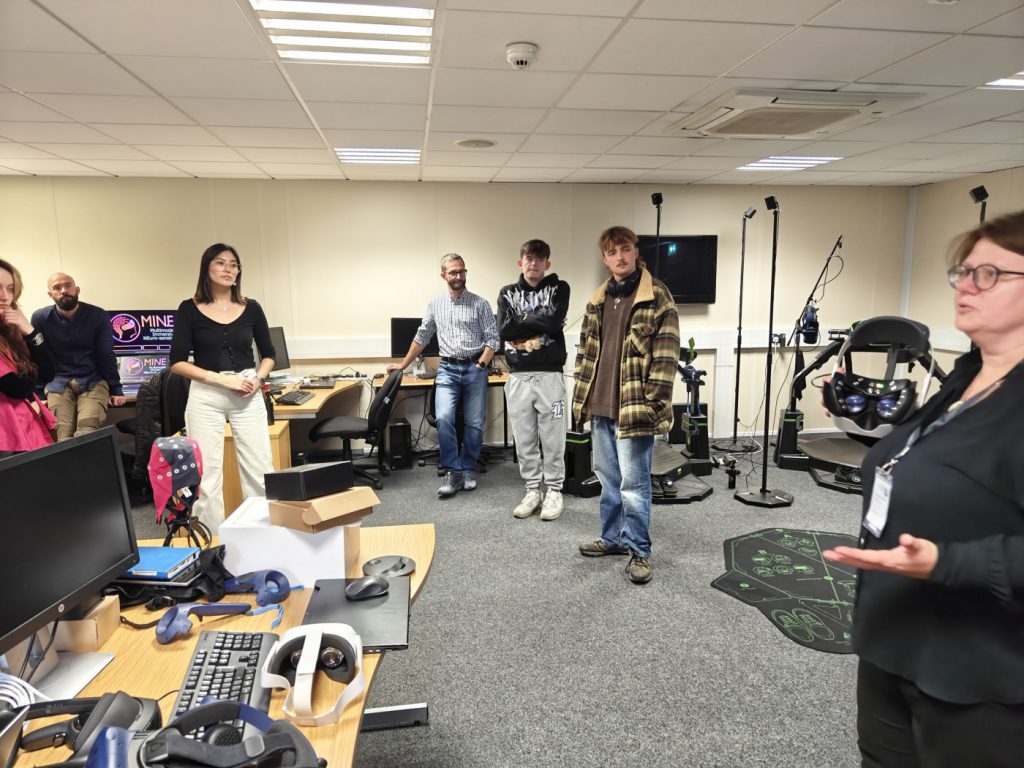
Ellen Seiss hosting the lab visit to MINE Cluster
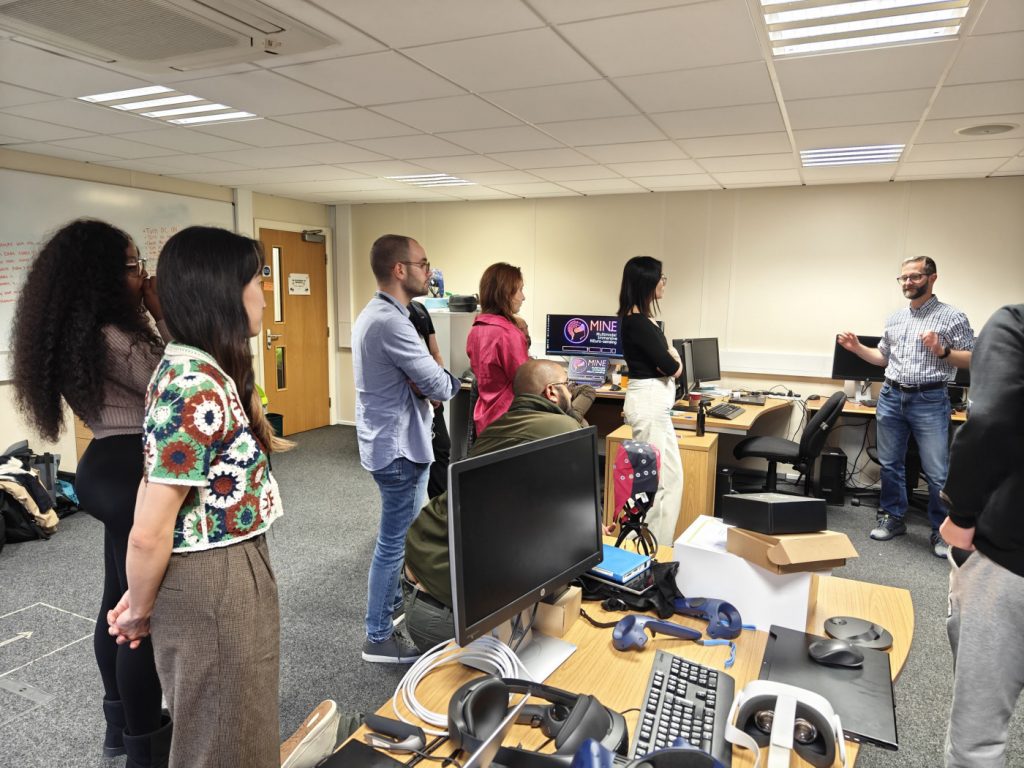
Fred Charles hosting the lab visit to MINE Cluster
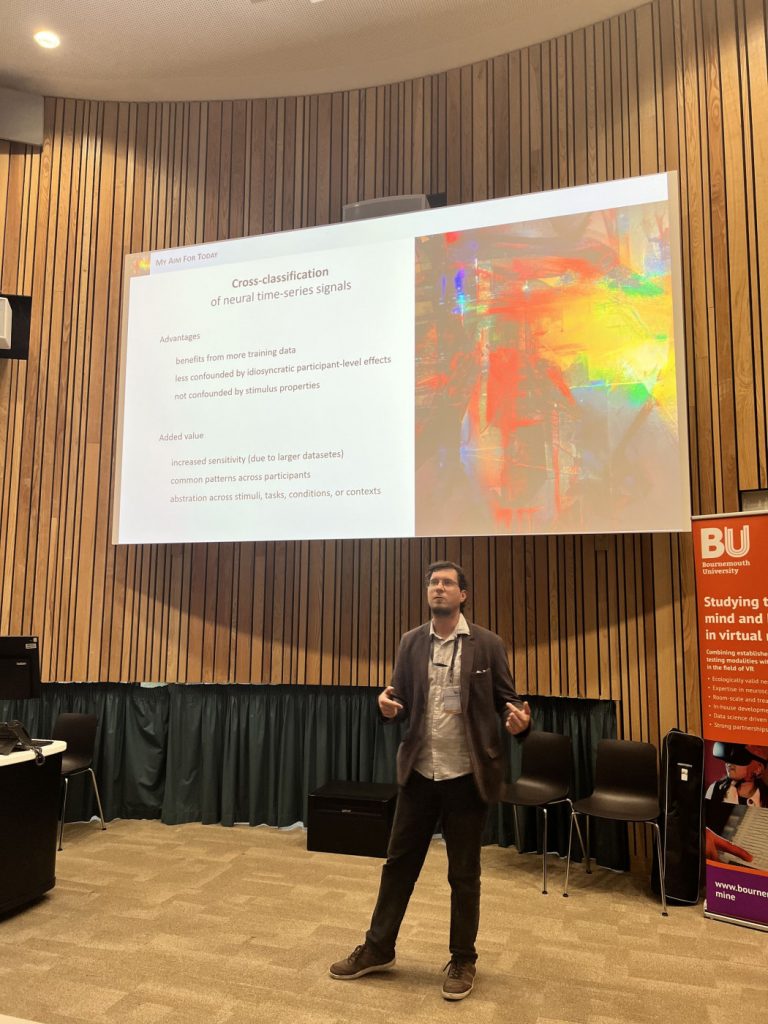
Géza Gergely Ambrus giving a workshop talk
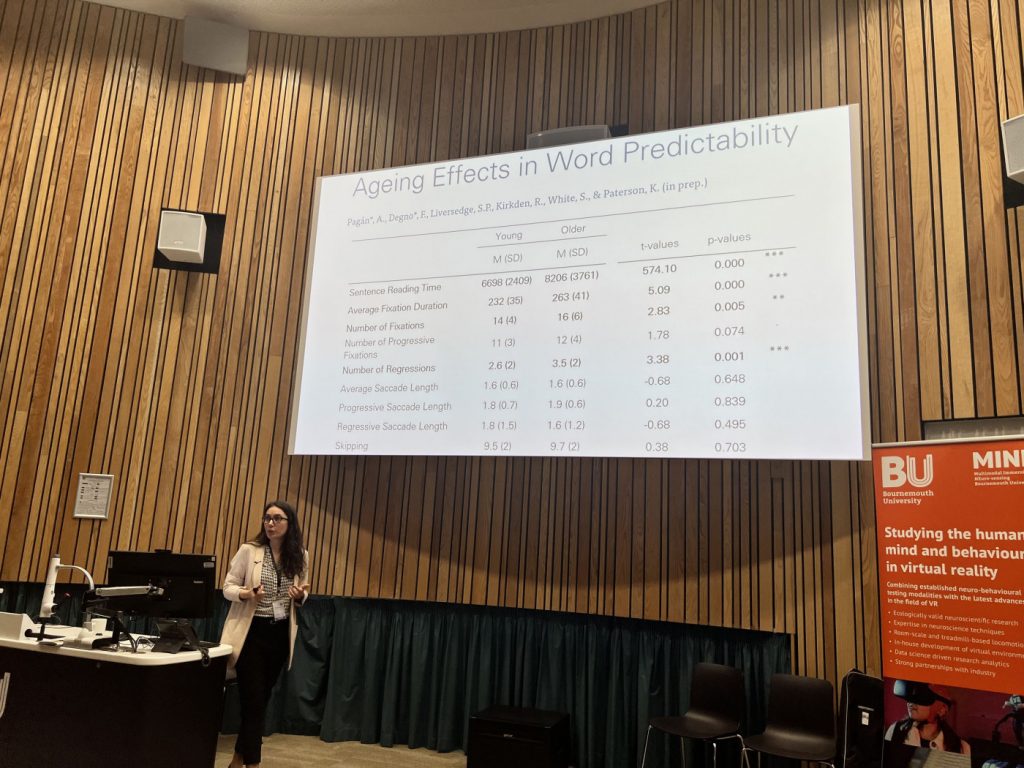
Federica Degno giving a workshop talk
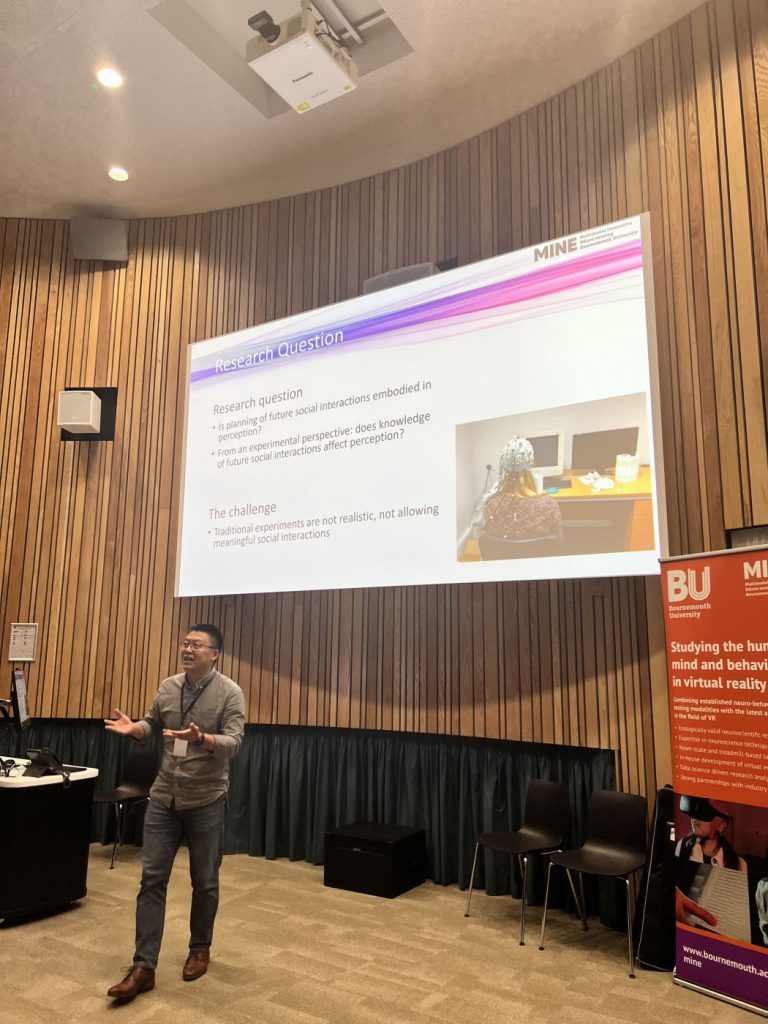
Xun He giving a workshop talk
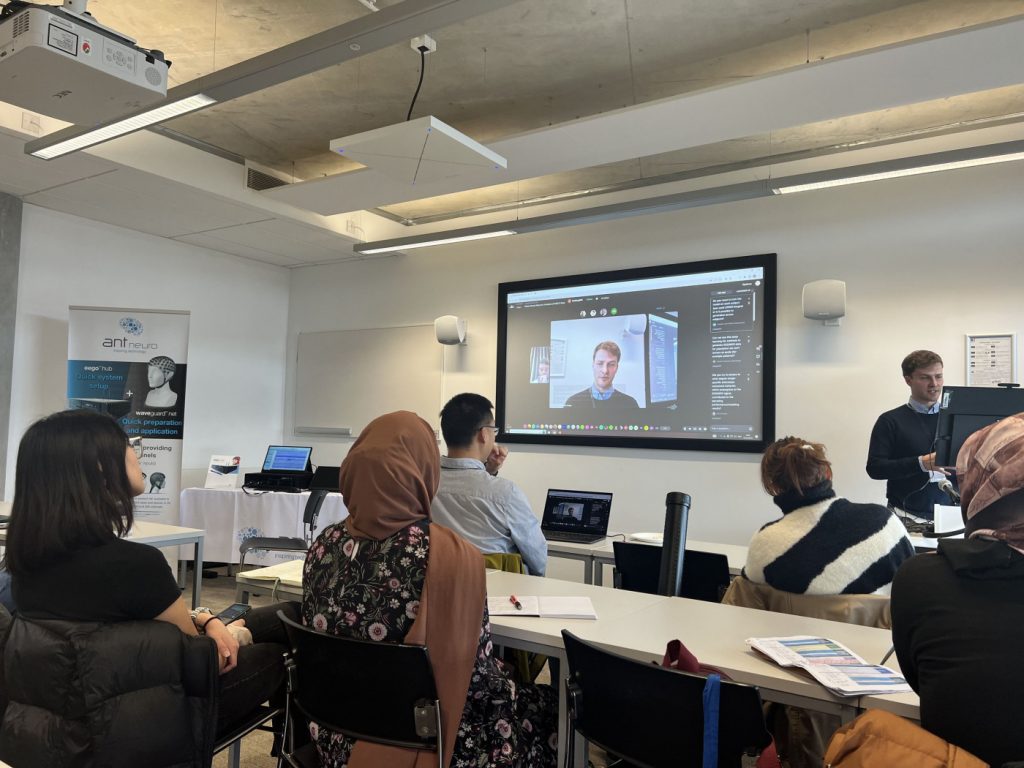
Our locally hosted plenary speaker, Hubert Banville (from Meta AI), was giving a plenary talk
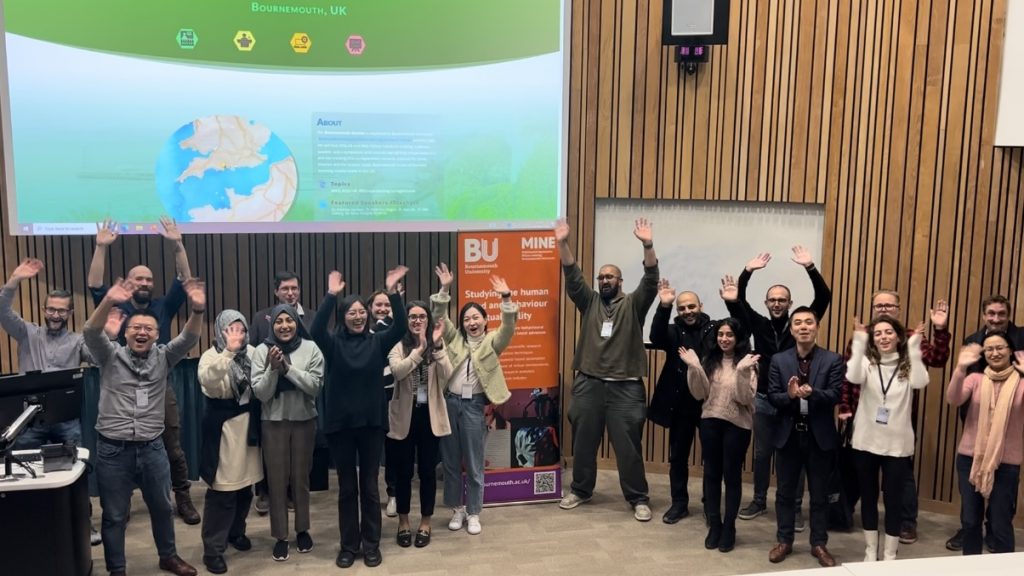
The cheerful and ambitious conference cohort
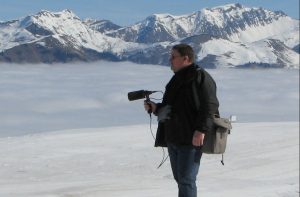
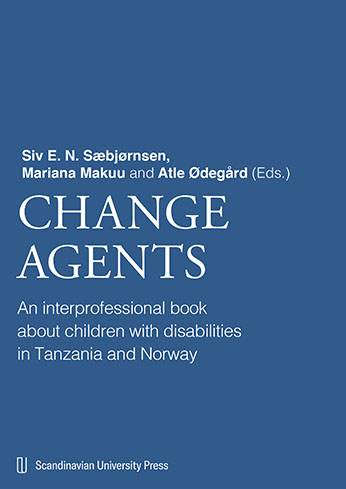


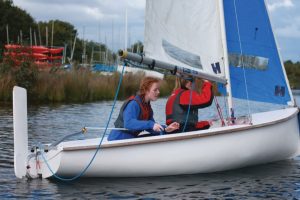
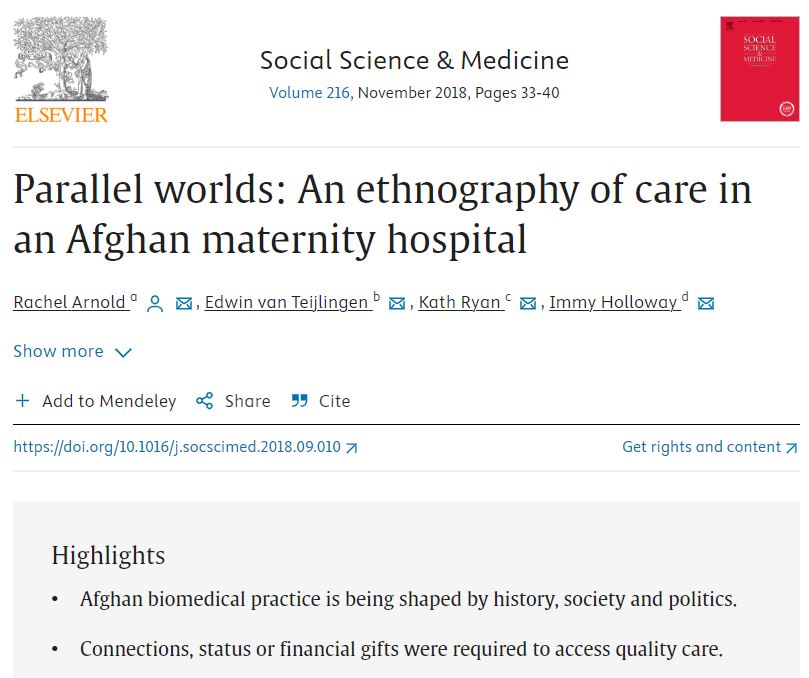
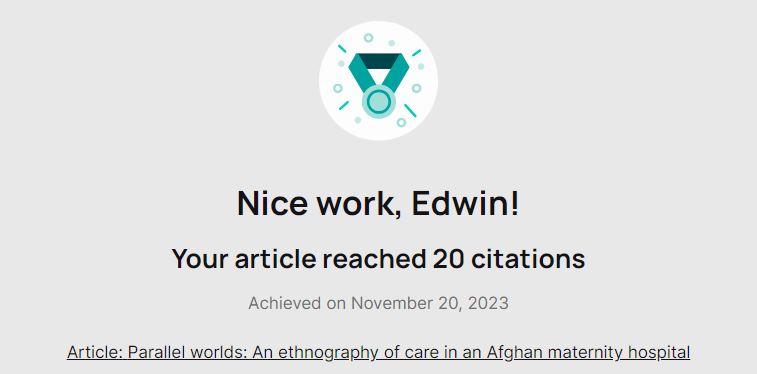
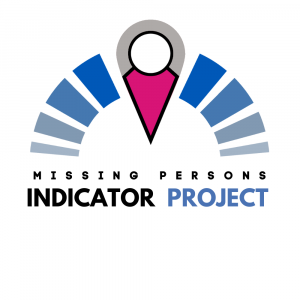 A team of 10 LLB Law students from across all levels is collating data on a pro bono basis on international, knowledge exchange project.
A team of 10 LLB Law students from across all levels is collating data on a pro bono basis on international, knowledge exchange project.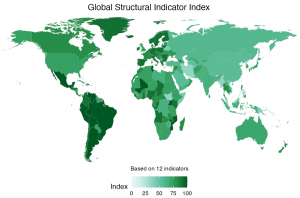 Findings to date will form part of the forthcoming ICMP Global Report and we will present the project rationale, methodology, data analysis and visualisation at the online
Findings to date will form part of the forthcoming ICMP Global Report and we will present the project rationale, methodology, data analysis and visualisation at the online 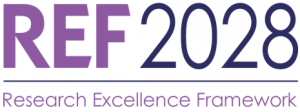
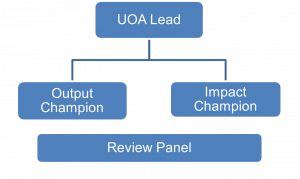
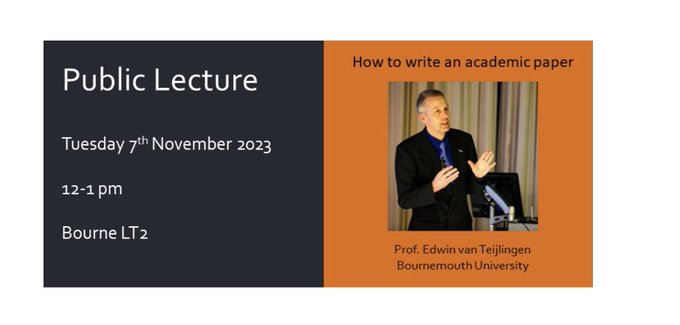 Professor Edwin van Teijlingen in the Centre for Midwifery & Women’s Health (CMWH) has been invited to speak at Royal Holloway, University of London, about writing an academic paper. His public lecture will be coming Tuesday lunch time in the appropriately named ‘Bourne Lecture Theatre’ at Royal Holloway. Prof. van Teijlingen, together with several Bournemouth University (BU) colleagues, has published a text book [1], several book chapters [2-18] and a large number of papers [19-38] about a wide-range of aspects of academic writing and publishing. One of former BU academics, who co-authored a book chapter [10], and two papers [21, 25], is Dr. Preeti Mahato. She is Lecturer in Global Health at Royal Holloway as well as Visiting Faculty in BU’s Faculty of Health & Social Sciences.
Professor Edwin van Teijlingen in the Centre for Midwifery & Women’s Health (CMWH) has been invited to speak at Royal Holloway, University of London, about writing an academic paper. His public lecture will be coming Tuesday lunch time in the appropriately named ‘Bourne Lecture Theatre’ at Royal Holloway. Prof. van Teijlingen, together with several Bournemouth University (BU) colleagues, has published a text book [1], several book chapters [2-18] and a large number of papers [19-38] about a wide-range of aspects of academic writing and publishing. One of former BU academics, who co-authored a book chapter [10], and two papers [21, 25], is Dr. Preeti Mahato. She is Lecturer in Global Health at Royal Holloway as well as Visiting Faculty in BU’s Faculty of Health & Social Sciences.
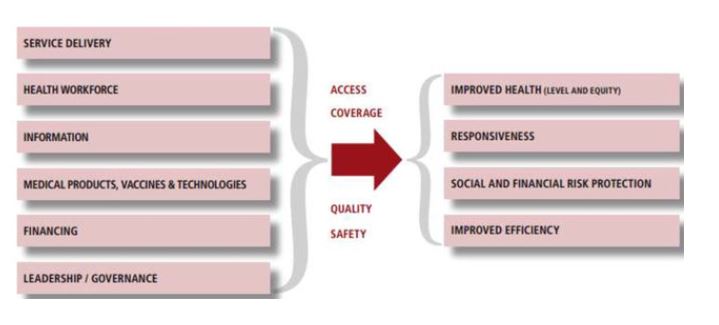
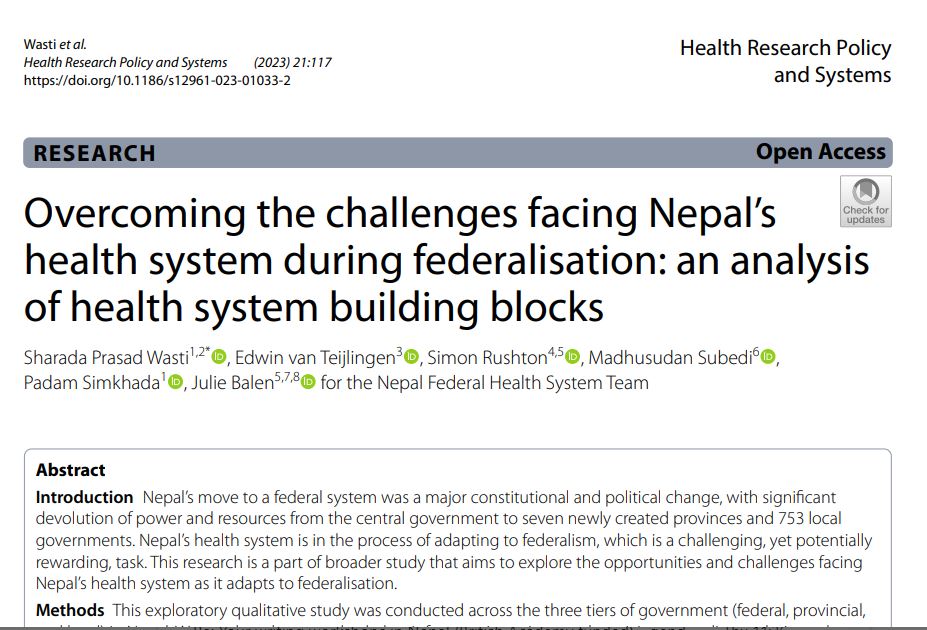
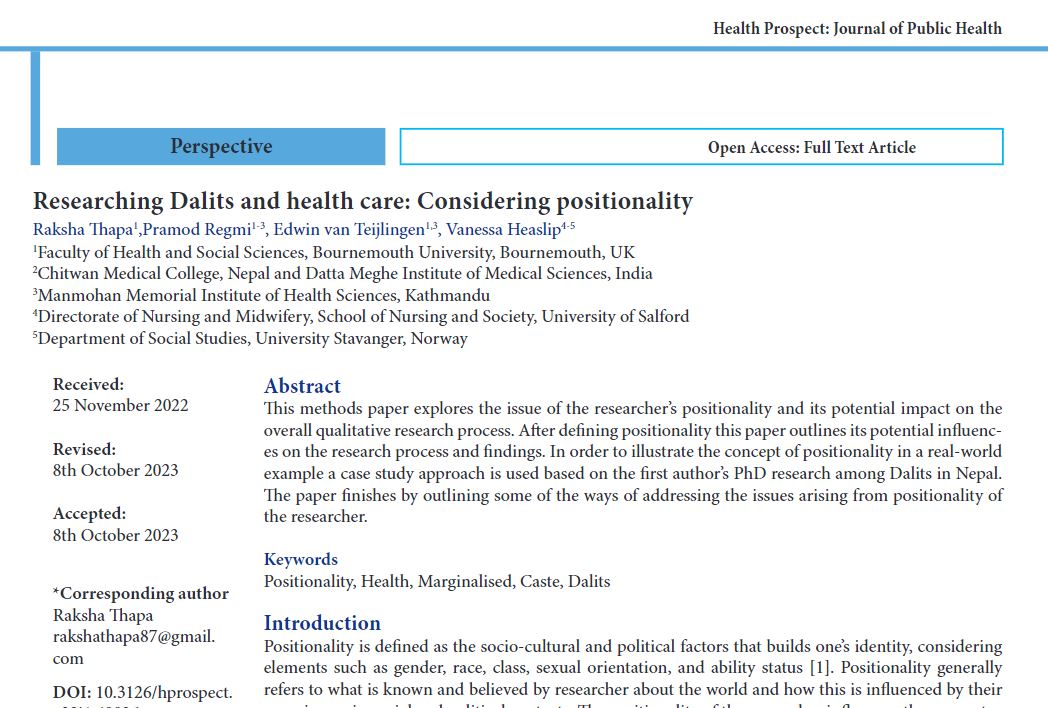













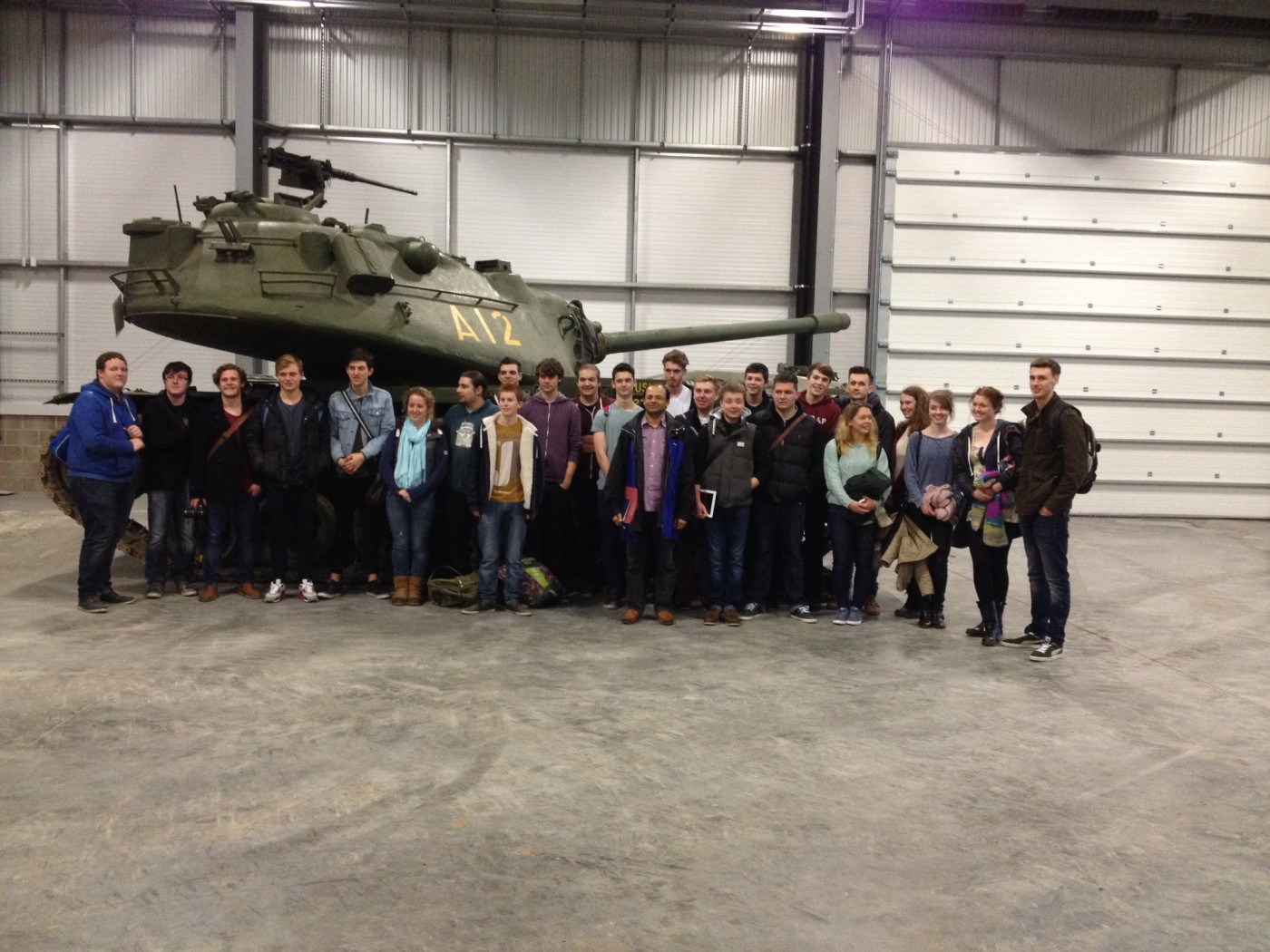


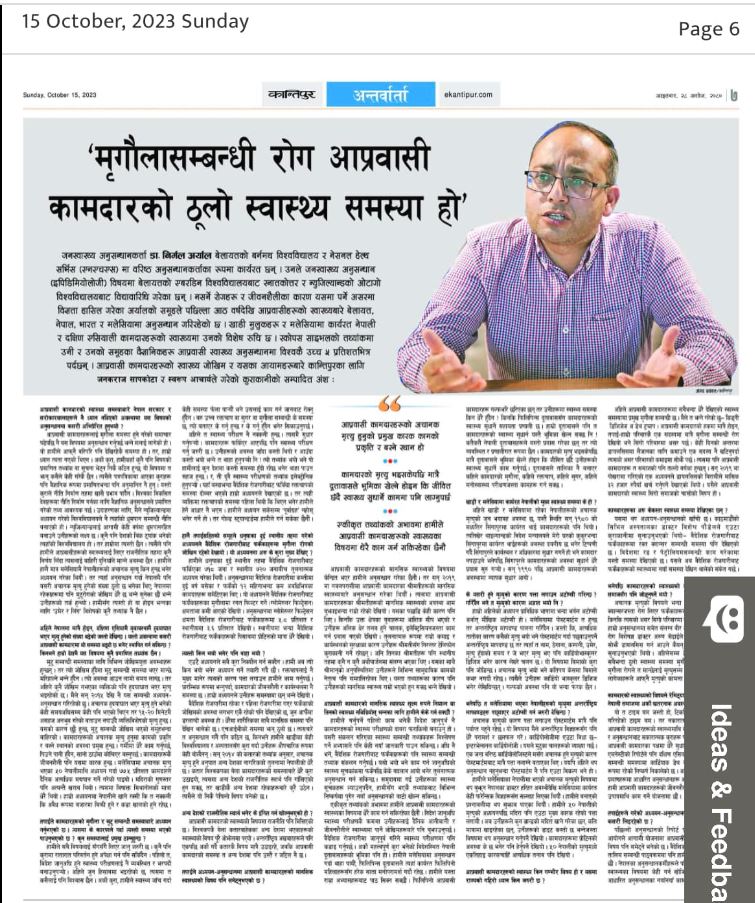
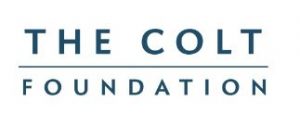











 Beyond Academia: Exploring Career Options for Early Career Researchers – Online Workshop
Beyond Academia: Exploring Career Options for Early Career Researchers – Online Workshop UKCGE Recognised Research Supervision Programme: Deadline Approaching
UKCGE Recognised Research Supervision Programme: Deadline Approaching SPROUT: From Sustainable Research to Sustainable Research Lives
SPROUT: From Sustainable Research to Sustainable Research Lives BRIAN upgrade and new look
BRIAN upgrade and new look Seeing the fruits of your labour in Bangladesh
Seeing the fruits of your labour in Bangladesh ECR Funding Open Call: Research Culture & Community Grant – Apply now
ECR Funding Open Call: Research Culture & Community Grant – Apply now ECR Funding Open Call: Research Culture & Community Grant – Application Deadline Friday 12 December
ECR Funding Open Call: Research Culture & Community Grant – Application Deadline Friday 12 December MSCA Postdoctoral Fellowships 2025 Call
MSCA Postdoctoral Fellowships 2025 Call ERC Advanced Grant 2025 Webinar
ERC Advanced Grant 2025 Webinar Update on UKRO services
Update on UKRO services European research project exploring use of ‘virtual twins’ to better manage metabolic associated fatty liver disease
European research project exploring use of ‘virtual twins’ to better manage metabolic associated fatty liver disease